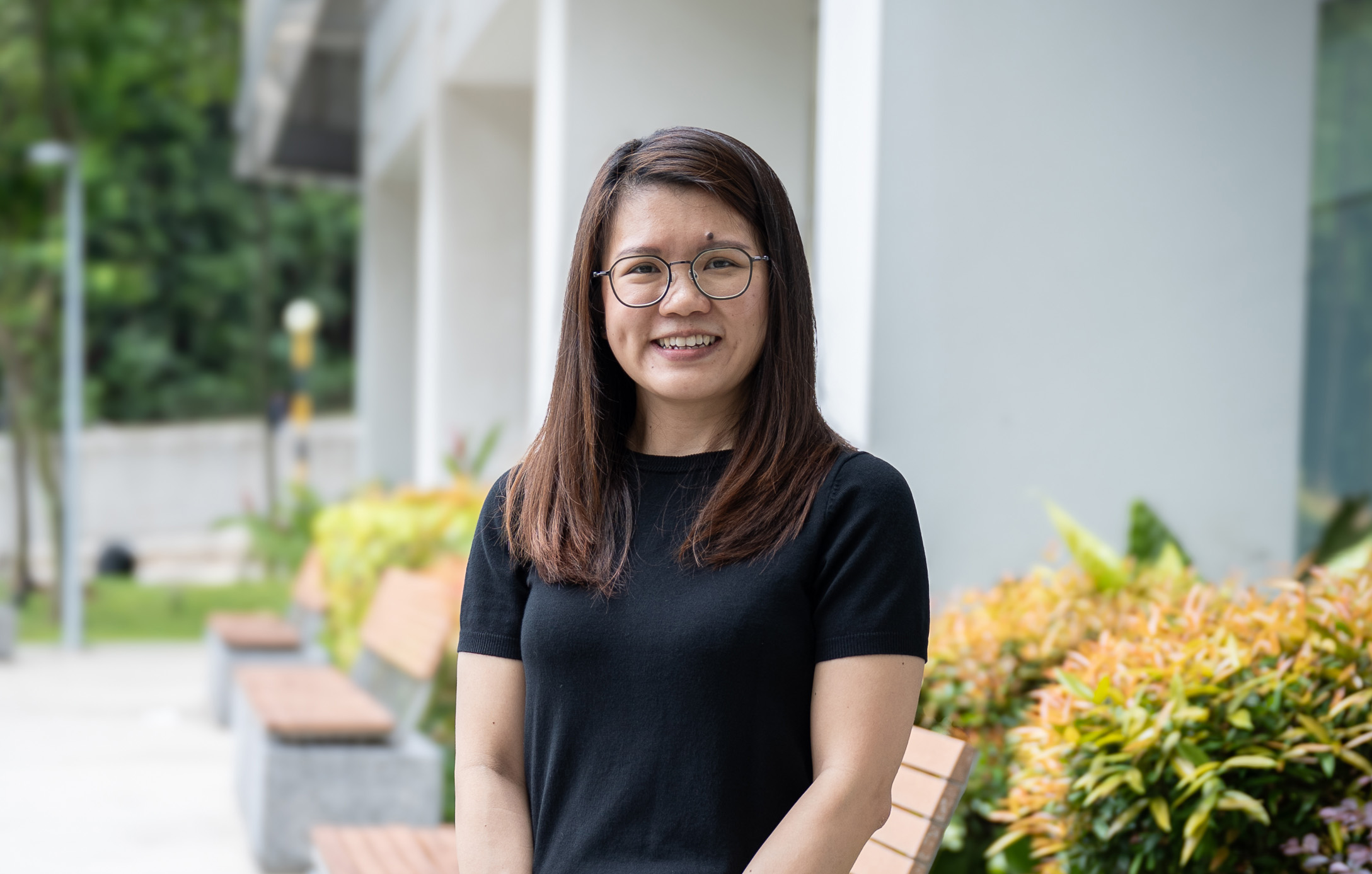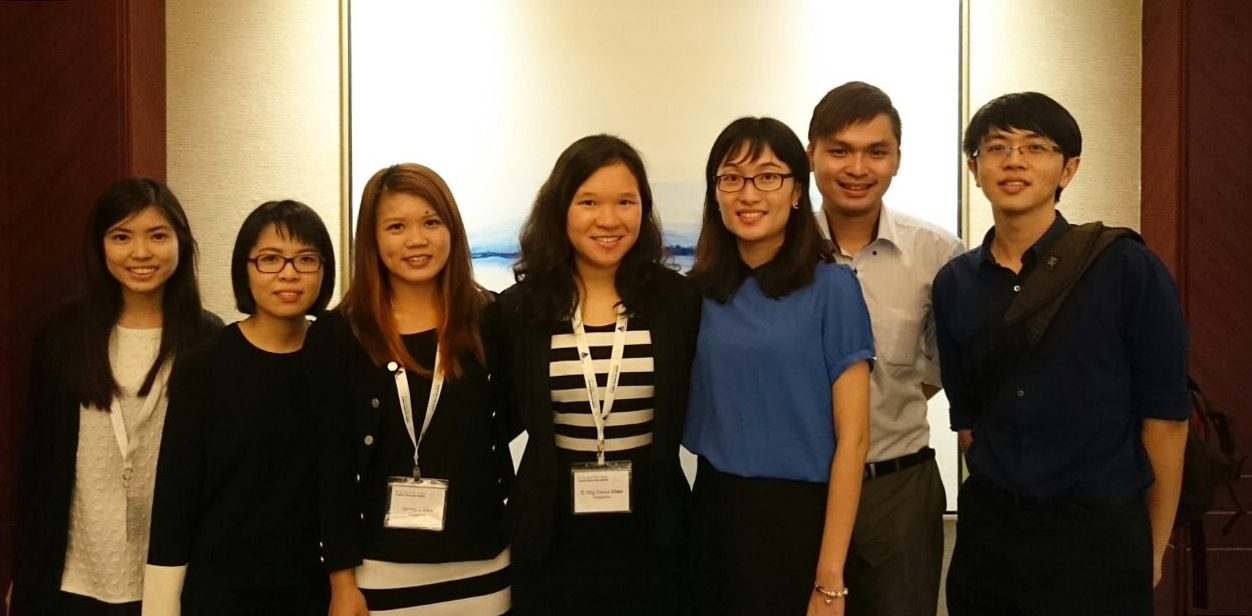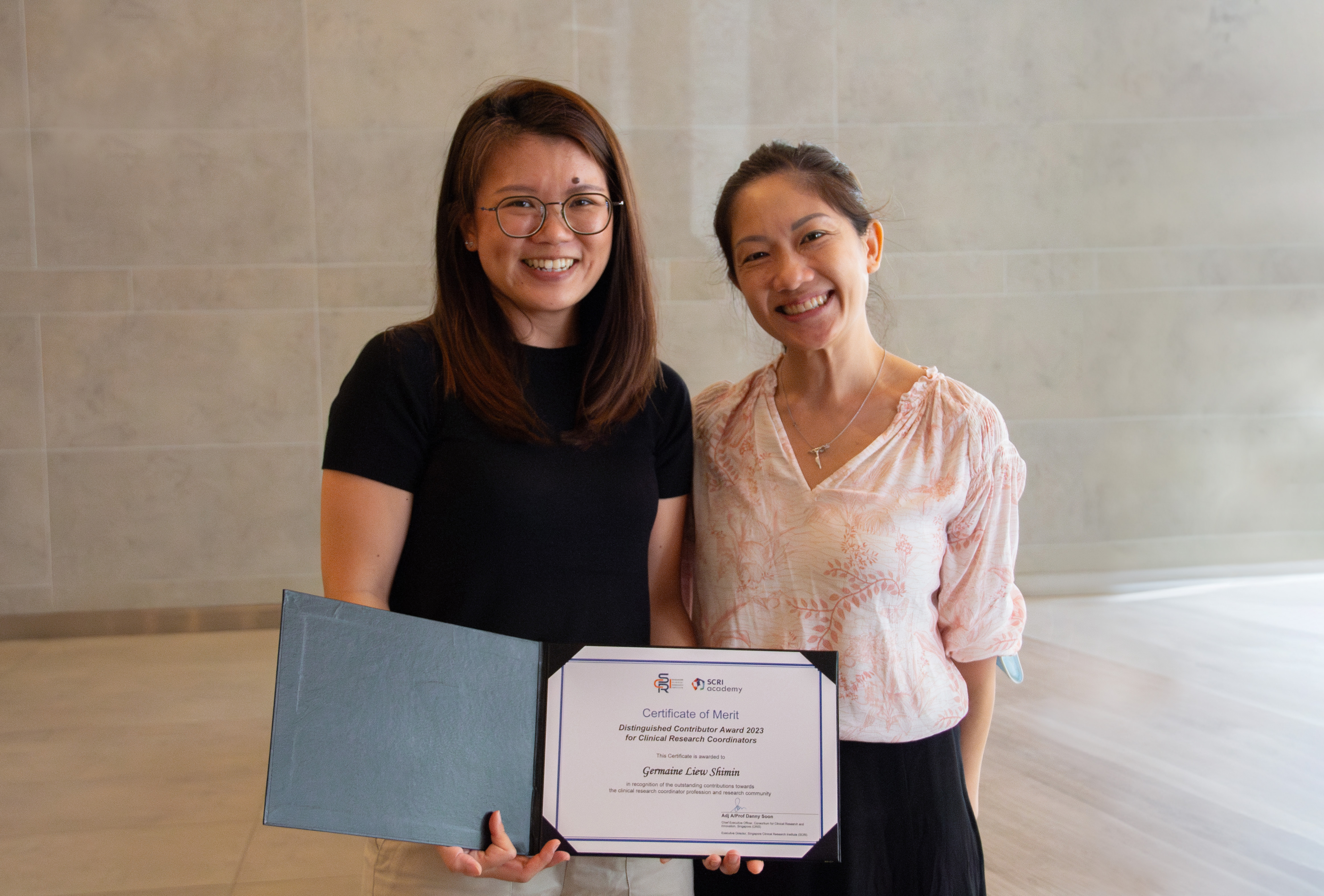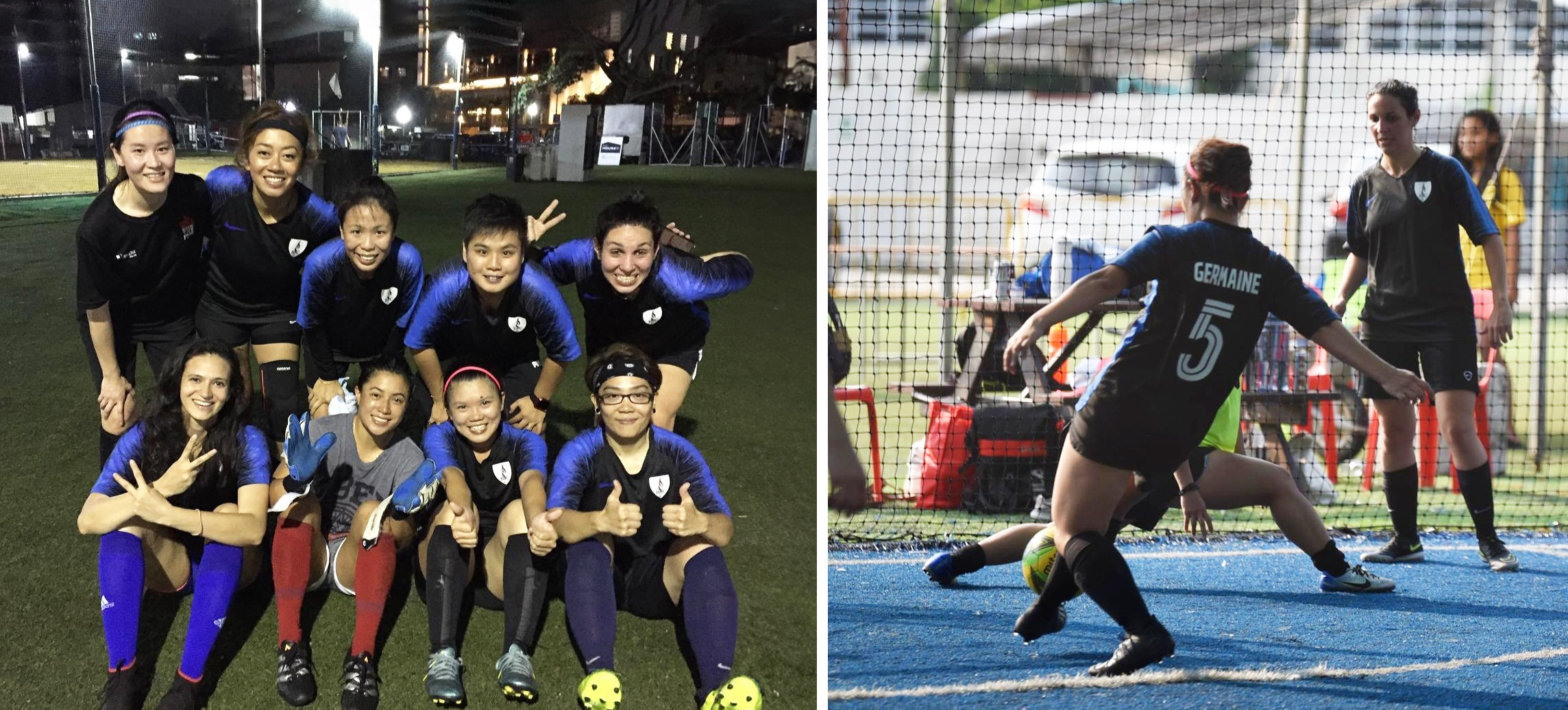“Scoring goals” to advance research that treat childhood blood cancers
Solid, dependable, and consistent – these are the quality traits that Germaine Liew takes on as the “defender” on the futsal court, a sport she enjoys as a hobby.
Germaine, who manages to schedule some time on the court whenever she can, has been actively involved in football and various team sports since her school days. She applies these qualities in her job, where over the past 14 years, she has led clinical research in a range of childhood cancers, from leukaemia to brain tumours.
When Germaine graduated from university in 2009, she served as a Data Manager for the Childhood Cancer Registry, where she learnt about different childhood cancers. The early exposure laid the groundwork for her eventual role as a Clinical Research Coordinator (CRC), where she manages several novel and cutting-edge clinical research studies at KK Women’s and Children's Hospital (KKH)'s Children’s Blood and Cancer Centre.
“Being a CRC was not a widely recognised role in the Biomedical industry at the time. However, while I was serving at the registry, I discovered that there is so much in clinical research I could contribute to,” she explained.

Germaine Liew, a CRC of 14 years
Drawing a parallel to her role of “defender” on the futsal field, she likens a CRC as one who safeguards team goals and makes critical decisions to direct the team’s strategies, benefitting both the patients she serves and the studies she oversees.
She extends these same values to her work, where she specialises in coordinating research trials for children with blood cancers, particularly acute lymphoblastic leukaemia (ALL). The MASPORE ALL2003 trial marked a pivotal moment in her career. The trial utilised a single polymerase chain reaction (PCR)-based minimal residual disease marker to stratify patients according to their risk profile and disease severity as a key consideration as part of the treatment plan. For patients assessed to be at non-high-risk, a three-drug induction regimen was prescribed for these patients.
The effort led to an improvement in six-year event-free survival at 80%, with an overall survival of 88%. The study showed that treatment could be appropriately tailored to disease risk, and that an anthracycline-free induction strategy did not compromise outcome for the majority of patients. The study also led to a follow-up trial MASPORE ALL 2010 to optimise the treatment plan for patients in the high-risk group.
“Back then, I was still learning the ropes. It wasn’t until we concluded the study and analysed the data that I saw how our patient survivor outcomes have also steadily improved thanks to the advancements in our local medical landscape,” she said.
For the then young CRC, being part of this study and witnessing its impact on patient survival outcomes, she felt the similar sense of satisfaction, akin to scoring her first goal in her career.

Germaine (third from left) with her fellow CRCs from the MASPORE study at the St Jude-VIVA Forum in 2015
As the study progressed to the next phase (now named MASPORE ALL 2020), it has become the longest running study that Germaine has managed since the beginning of her career (the study began in 2003; 21 years). In MASPORE ALL 2020, precision medicine and risk-adapted therapy remains the cornerstone strategy for treating this childhood cancer.
She reflected, “I hope that current medical advancements will continue to challenge the perception that cancer is difficult to cure in young patients.”
Empowering teams to run effective CAR-T therapy trials
In recent years, Germaine has also supported Principal Investigators in leading a new type of revolutionary treatment that has shown to be highly effective for blood cancers - chimeric antigen receptor T-cell (CAR-T) therapy trials.
She adeptly handles tasks such as drafting contract agreements, overseeing logistics, liaising with manufacturing sites and communicating with clinicians across various institutions. Her work also involved ensuring compliance with ethical and regulatory requirements and organising extensive training sessions for her team to navigate the new treatment modality.
When asked how she manages to keep everything in-check and running smoothly,
she shared, “There is a lot of trust within the team — everyone does the
heavy lifting according to their area of expertise."
"The dedication of the doctors and nurses who have their own responsibilities but still devote their time to saving lives serves as a major inspiration that keeps me going,” Germaine said.

Germaine with Dr Michaela Seng, Senior Consultant, Haematology/Oncology Service and Lead PI for one of the multi-site CAR-T therapy trials
She shared that hard work and the team effort is especially worthwhile when young patients who have gained access to CAR-T treatments through local clinical trialscan overcome their condition, thrive and are given a second chance at life.
Bridging gaps and building trust
For young cancer patients who have exhausted traditional methods of treatment, they may be considered for CAR-T treatment through the trials. Before enrolling them, informed consent is required. Germaine steps in to speak with patients and their families. These patients ranges from newborns to teenagers. She maintains empathy and compassion by putting herself in their shoes, and carefully explains the details of the clinical research study to them.
Germaine is a reassuring presence and valuable member of the healthcare team, supporting parents, clinicians, and social workers to connect better with one another. Recognising the isolation that some families may feel, Germaine goes beyond her call of duty to ensure all are present in these sessions.
“When a child is diagnosed with cancer, parents become key decision-makers, despite often feeling overwhelmed and helpless themselves,” she shared.
Although the lead doctors are the ones to explain the studies to the parents, Germaine makes a conscious effort to be present in those meetings from start to end such that she is not perceived as someone who “appears abruptly just to seek consent”.
Instead, she explores ways to go beyond her role, such as being a comforting pillar of support for patients and their family, and deepening the trust and rapport between the parents and clinicians.
“It can be an isolating journey for families. It is crucial that we do more than just answer their questions; offering them reassurance is equally important,” she shared.
“This approach is a comforting reminder that the medical team walks with families on the challenging path, with the ultimate goal of ensuring the well-being of their child,” she added.
When asked what advice she would give to junior CRCs, Germaine emphasised that apart from extending empathy to patients, it is important for them to remain adaptable, learn from mistakes and make timely improvements.

Germaine (first row, second from right) with her futsal team
Much like in futsal, she encourages her mentees to stay agile, anticipate unforeseen developments and be reliable team players that clinicians and nurses can depend on. This approach helps ensure that they effectively protect the team's objectives and achieve the best outcomes for their patients.


